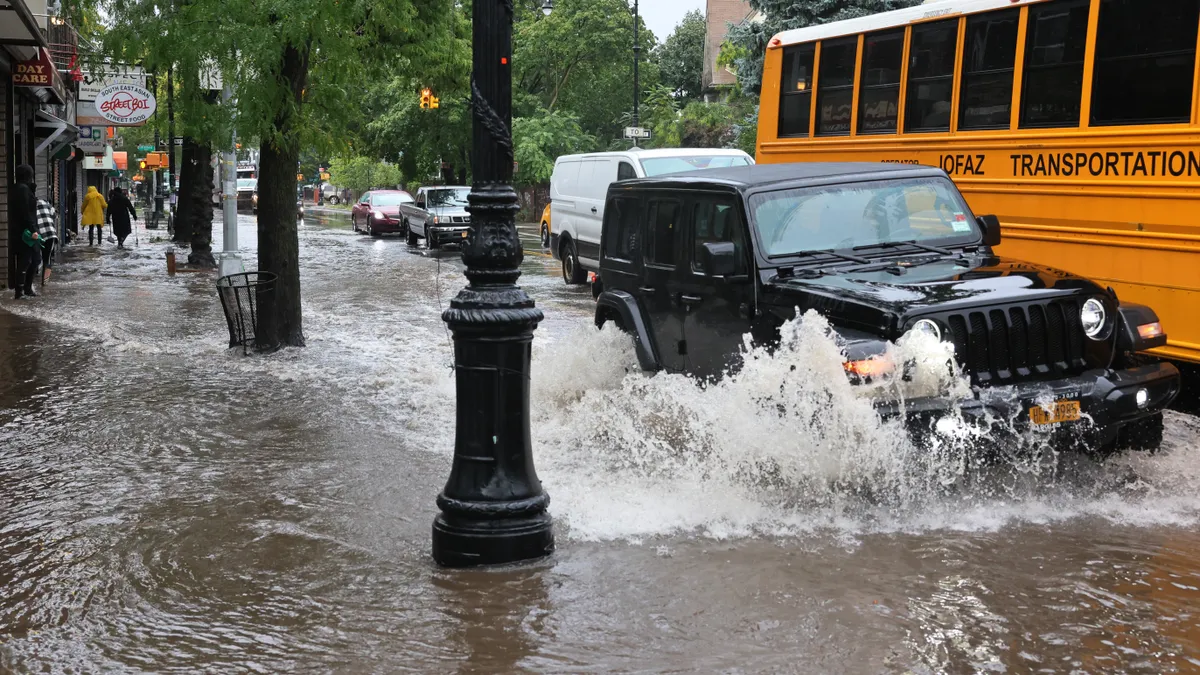Dive Brief:
- Sixteen cities, including four in the U.S., signed a commitment to protect vulnerable communities from severe flooding and drought through C40 Cities’ new Water Safe Cities Accelerator, launched on Nov. 22.
- New Orleans, New York City, Phoenix and Los Angeles signed on to establish comprehensive early warning systems in all high-risk, low-income areas, as well as develop emergency response plans for flooding and drought events.
- Each city will also pursue one of three pathways: ensuring universal access to clean water, implementing flood protection measures, or aiming for net-zero greenhouse gas emissions in water and wastewater management systems.
Dive Insight:
Water-related climate hazards account for 90% of global disasters, with cities in the Global South more likely to suffer impacts than those in the North, according to C40, a global network of almost 100 mayors dedicated to addressing climate change.
This summer, the U.S. saw drought expand and intensify, with the worst-hit areas in the southern U.S. receiving little rain and lots of extreme heat, according to the National Integrated Drought Information System. Other communities, including those in Vermont, New York City and Kentucky, saw major flood events this year. C40’s research predicts that flooding will cost its member cities $136 billion in GDP each year for the next three decades, while more frequent and severe drought will cost the cities $111 billion annually.
The Water Safe Cities Accelerator “will be crucial for cities in sharing best practices and uplifting success stories,” said Phoenix Mayor Kate Gallego, who also serves as C40 vice chair, in a statement. Cities interested in joining the efforts can reach out to [email protected]. Participating cities will receive tailored technical support from C40.
To accomplish their chosen pathway, participating cities must meet certain goals.
Those choosing to ensure universal clean water access commit to reducing water demand by 20% and increasing water supply by 15% by 2030. To protect against flooding, cities must by 2030 increase stormwater retention and infiltration by at least 20%, and restore at least three urban water bodies to reduce flood risk and improve water quality.
Cities that choose to achieve net-zero emissions for water and wastewater systems commit to 2035 goals of meeting all annual energy consumption of such systems with renewable energy, as well as capturing and using at least half of biogas produced by wastewater plants. Biogas, which when treated to remove CO2 and other gases may be called renewable natural gas, is a gas that can be burned as fuel.
C40 has led other “accelerator” programs in the past, which have focused on issues such as renewable energy, urban greening and clean construction.












